Originally invented as a tool to collect materials, store and transport loose food, the handbag has evolved into more than that, moving away from its technical function to become a fashion statement, a display of financial prowess and, arguably, the most important piece in a brand’s lineup, heavily relied upon to bring in sustained cash flow.
In 2020, there are bags of different shapes, meant for every season and priced at any budget. Alongside shoes, they’ve become the accessory par excellence. At this very moment, there are 2,172 bags available for purchase on MyTheresa.com, ranging from a $148 Cult Gaia bamboo clutch to an $8,400 Bottega Veneta sponge leather clutch. On Asos.com—usually a more affordable website compared to the former—users can browse through 490 entries as expensive as a $228 AllSaints tote bag. The possibilities are endless and yet we find ourselves constantly migrating towards the most expensive, exclusive designer handbags out there, which have ballooned in price in recent years.
Just this past May, Chanel announced a worldwide increase in prices of certain products to “take into account a rise in the cost of raw materials amid the coronavirus pandemic.” The 5% to 7% uptick “only regards Chanel’s iconic handbags, 11.12 and 2.55, as well as Boy, Gabrielle, Chanel 19 bags and certain small leather goods,” the company announced in an official press release.
According to Pulse News Korea, Louis Vuitton and Tiffany & Co. also hiked up their prices by 11% on certain products sold in South Korea.
But it isn’t just a global pandemic and shifting resources that have supposedly forced companies across industries to shift their financial propositions: inflation and economic order have been catalyzing an increase in prices on all types of goods—including designer handbags—for years. According to online marketplace Open for Vintage, the retail price of designer bags increases by an average of 3% each year.
Reuters reports that Louis Vuitton’s Neverfull MM Monogram bag, for example, cost $1,320 at the end of October, $1,430 at the beginning of May and today sells for $1,500 on the brand’s website. That amounts to a 14% increase in price.
Back in May, we analyzed fluctuations in costs on Chanel bags. For example, the classic mini rectangular flap bag—which once sold for $3,500—went up 8.6% and is now attached to a $3,800 price tag. The price of the Chanel classic medium flap bag increased by 12.1%, from $5,800 to $6,500. Clearly, folks are buying these bags—no matter how expensive they are. Which begs the question: why do we spend so much money on designer handbags while scoffing at the notion of dishing out a couple of dollars on an iPhone app, for example? What is it about a high-end bag that pulls us in and convinces us to shell out exorbitant amounts of money on it, even if not always able to actually afford it?
What is it about a high-end bag that pulls us in and convinces us to shell out exorbitant amounts of money on it, even if not always able to actually afford it?
Turns out, multiple forces are at work, simultaneously shaping our psyches—and wallets—to convince us that luxury items aren’t just things we want but actually need. For women especially, a sense of self highly depends on potential access to these accessories.
“There is an individual that wants people to see they are rich [so they feel better about themselves],” explains clinical psychologist Dr. Cali Estes. “And there is another person that wants to be fashionable, wants to be seen as cutting-edge.” Although the immediate thoughts associated with owning the item differ, both types of people rely upon the object to achieve a higher sense of self-esteem, based upon other folks’ feelings towards the product. We spend thousands of dollars on a Boy bag not because the bag makes us feel good, but because other people’s reaction to our being able to afford the bag makes us feel good.
Of course, it’s not so entirely black-and-white. The popularity of an item is somehow based on its use, function and beauty. But a bit of all those qualities goes a long way when justifying steep cost increases.
Another reason why we seem to be hooked on expensive handbags is the experience that comes along with the act of purchasing one. “When you walk into Prada, it’s like you’re royalty. They treat you amazingly,” explains Dr. Estes. “It’s not just about the purchasing of the item, it’s the full experience.” She likens the process to “going to Supercuts versus a hair salon to cut your hair.” Although the result might be the same, the voyage differs. “Every time you take out the bag you bought from Prada, you remember the experience,” she says. That line of thought also explains why purchasing an identical product from a thrift shop—a bag as “real” as a new one from Prada—doesn’t feel as satisfying as going to a brand store.
Interestingly enough, according to Dr. Estes, “if you put two identical bags in front of someone that has disposable income but one of them is thousands of dollars more expensive, they’ll go for the more expensive bag.” Having money seems to come with the side effect of wanting to spend it.
Of course, the psychology involved in the marketing and purchasing of high-end products doesn’t solely apply to women. According to Dr. Estes, men’s feelings towards watches are similar to women’s towards bags. The expert also mentions that men flock towards “experiences” and products associated with them, more than they do material goods. “You will see this behavior among men and sports,” she says. “They will buy jerseys, helmets, signed autographs and put it in their man caves.” The difference, as told by the psychologist, is that those products make male buyers feel good in and of themselves, not in reaction to other folks’ thoughts about the purchase.
The difference in logic isn’t only found on a woman-men spectrum, but across cultures. In France and China, for example, owning expensive products has become a virtual requirement in the quest to “keep up with everyone,” according to Dr. Estes. Across the ocean, owning a $4,000 bag isn’t considered a luxury but a necessity.
Although not necessarily a propelling force when analyzing our desire to purchase expensive fashion items, it is worth noting that high-end designer bags happen to retain their value—and then some. You might spend $3,000 on a new Louis Vuitton tote, but you can rest assured you’ll get part of that money back if deciding to part ways with it and sell it used on a secondary market.
As sensical as all the psychological arguments are, there is something simply illogical about fashion. We can predict what kinds of clothes and accessories we will want as ours just as easily as we can the trends that will take over the runway—and our closets—in upcoming seasons. That is to say: some things just can’t be explained. A lot of fashion has to do with feeling and circumstance and, at the end of each day, aren’t we all just trying to feel a bit better about ourselves? So what if an incredibly expensive and likely overpriced bag helps us get there?

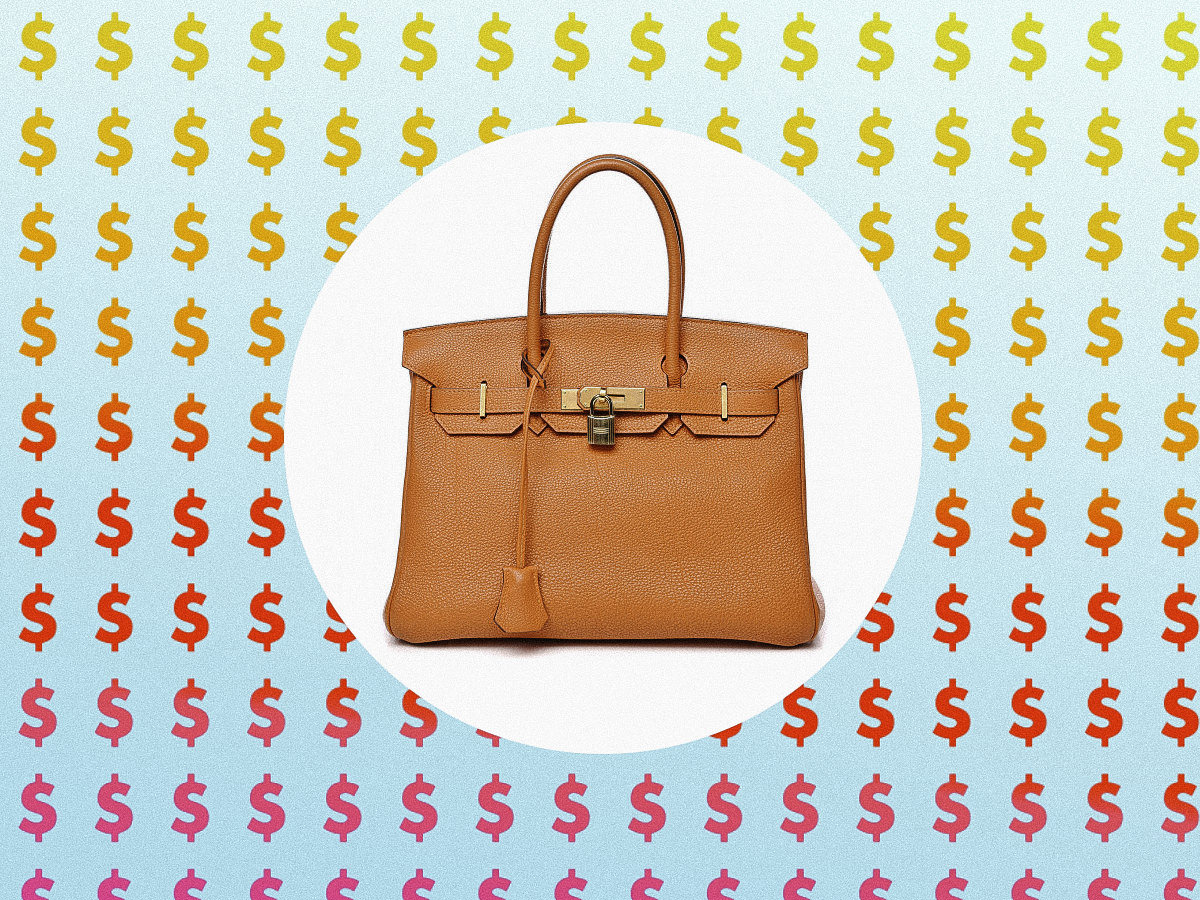
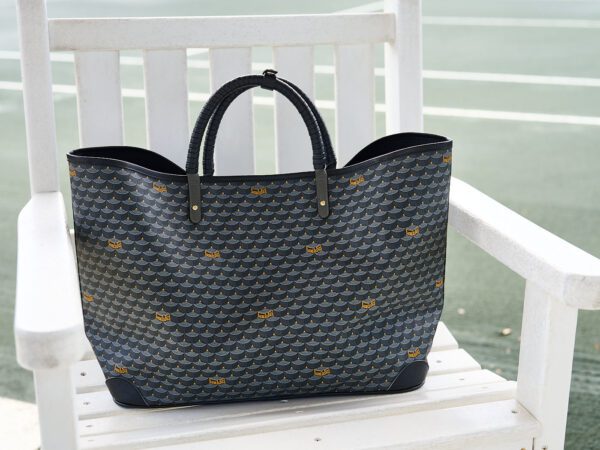
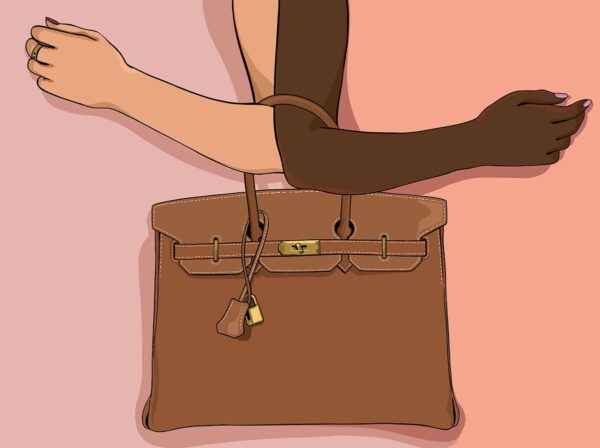
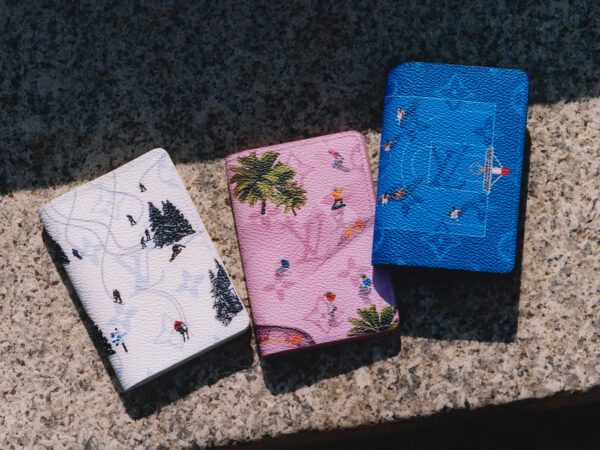
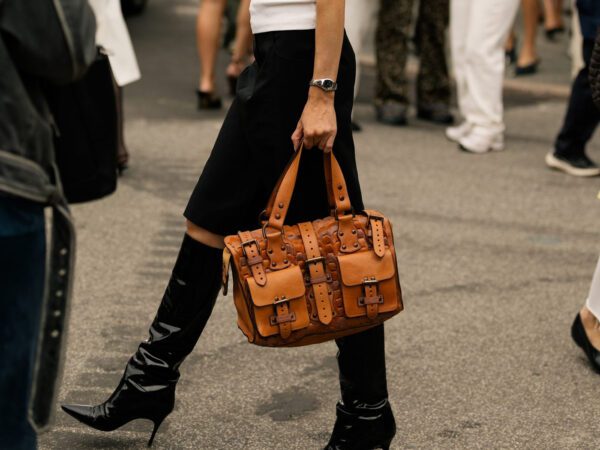
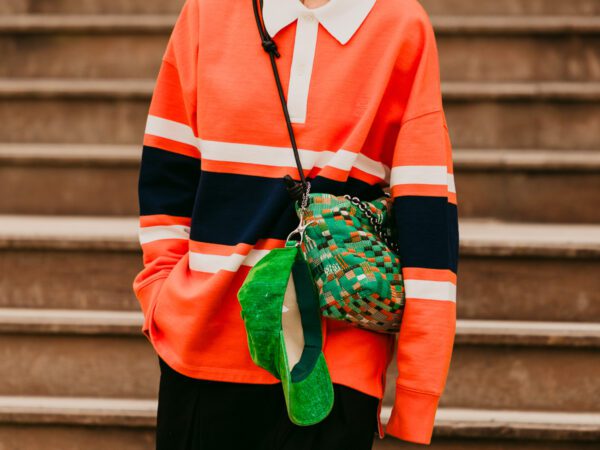
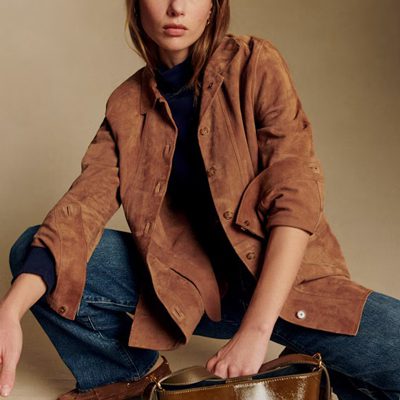
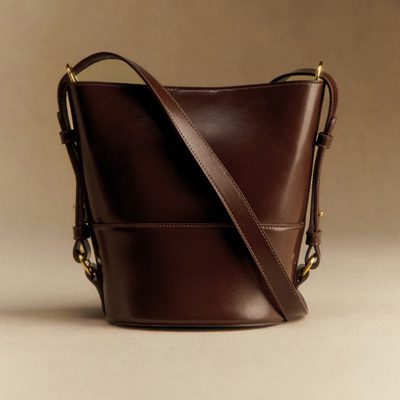
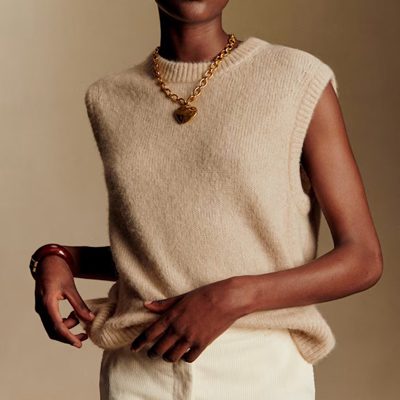
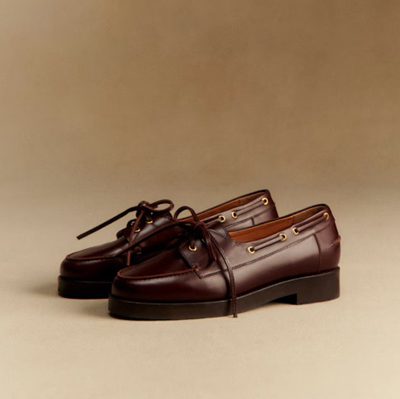
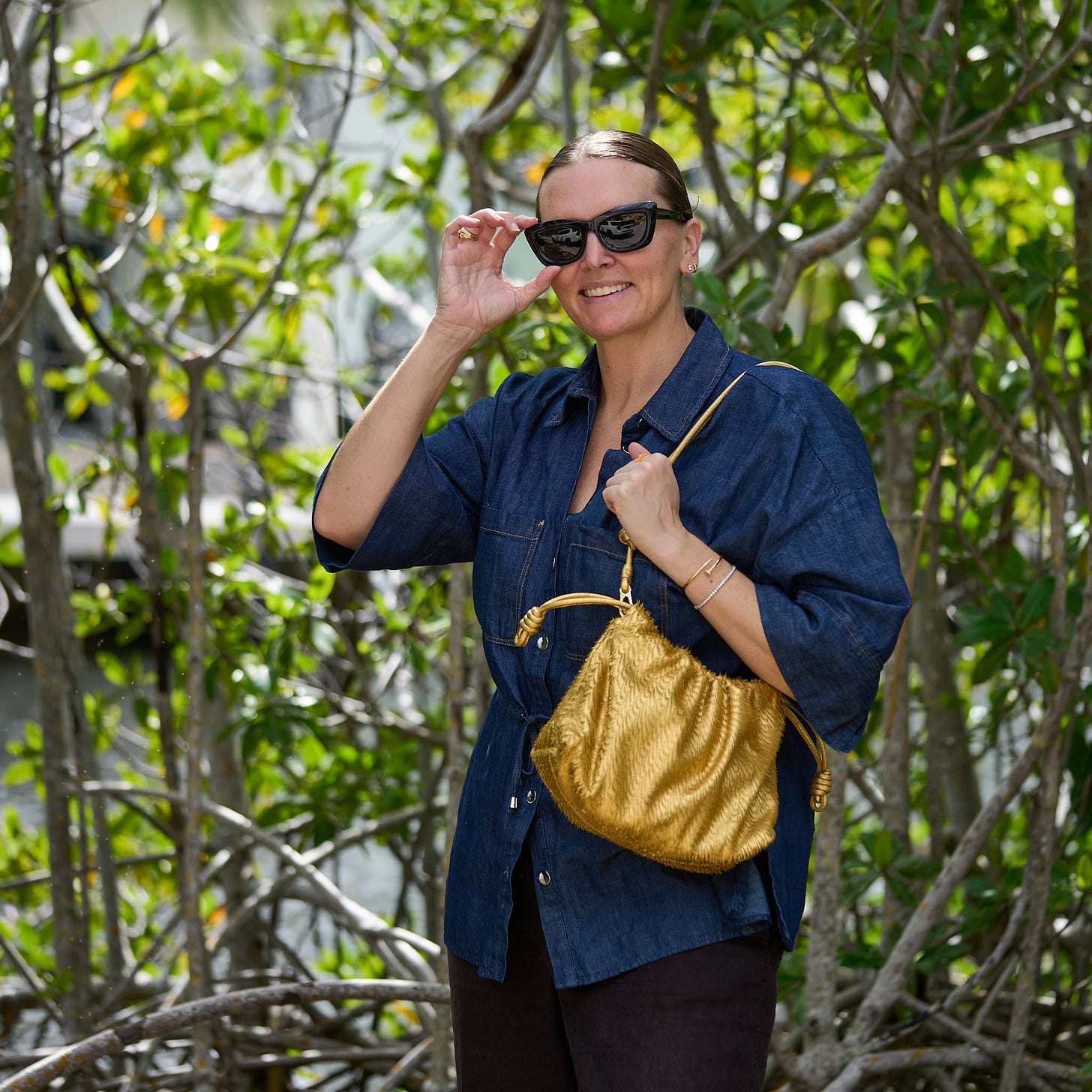

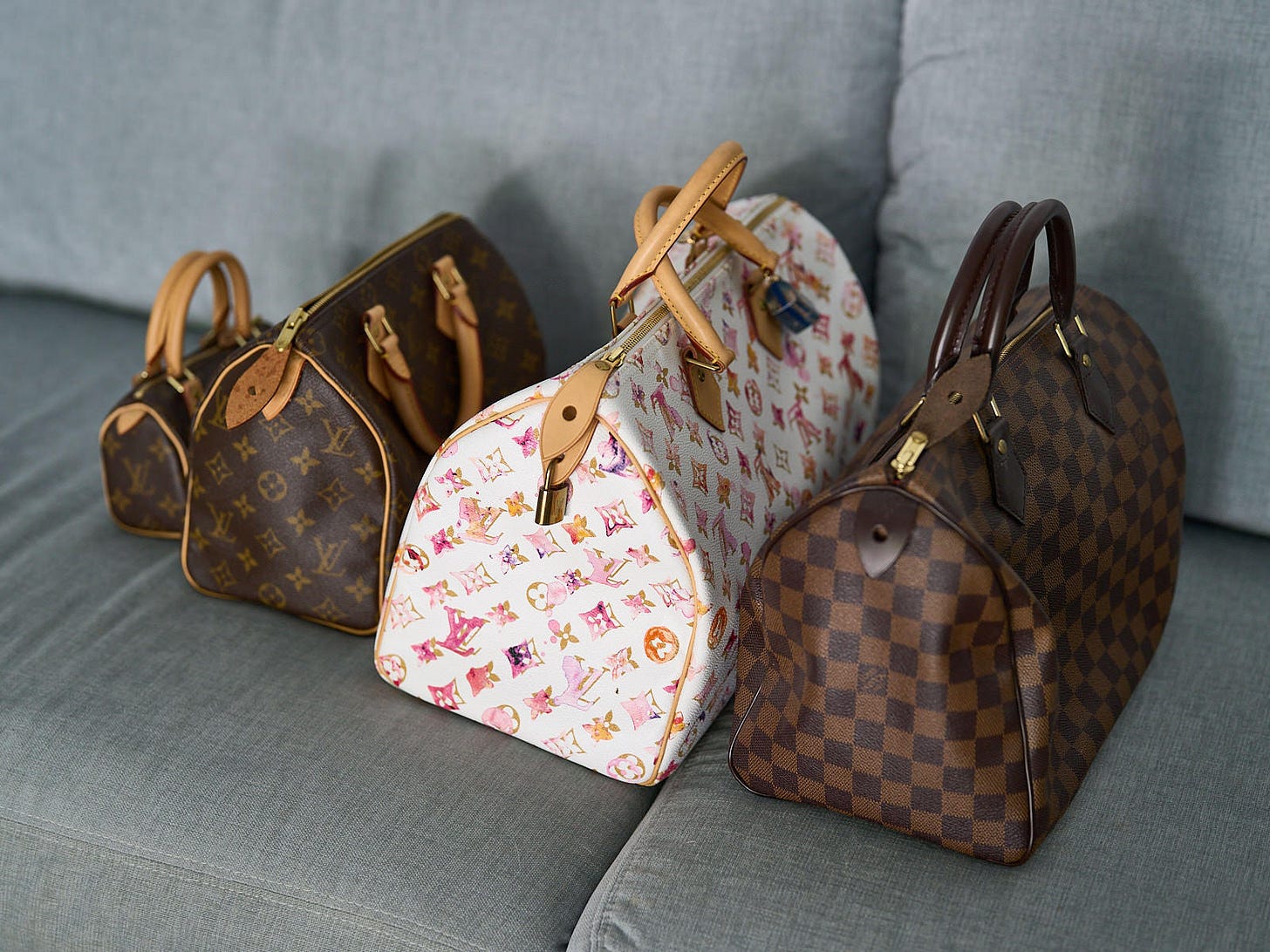
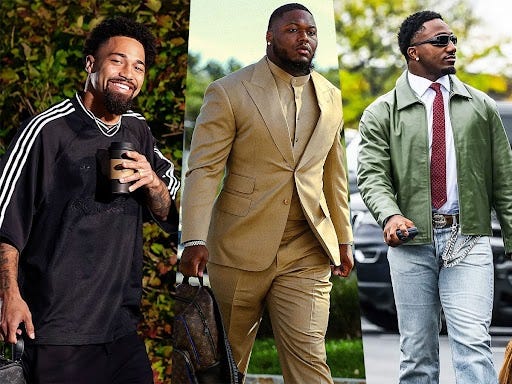
I purchase expensive items for many reasons and not to get attention, which I dislike. I buy because I’ve always coveted nice bags, but could never afford them. Now, as I’ve gotten older and my expenses are greatly minimized it allows for more disposable income. Also, I buy what I like and not what “influencers, celebrities”, etc. like. For instance, recently in a Chanel boutique the SA tried to steer me towards a bag because “many influencers love it”. I told him “they get their bags for free and have no influence over me” and he knowingly smiled.
Also, I do expect to have an enjoyable buying experience when purchasing my bags. I want to be respected as I respect SA’s, which is important to me. If an SA is rude or demeaning I won’t purchase since it diminishes my experience. When I use a bag I want to remember the experience as a pleasurable and positive one. Lastly, I enjoy quality, well made handbags and purchase many from Hermes. While I don’t like to pay more I will in order to ensure that my bag can be passed down to my daughter and granddaughter.
The only thing here I take issue with is the term “nice bag.” You can spend $25 and get a “nice bag” because “nice” sets a pretty low bar. If by nice you mean exceptional, that’s another matter.
Amen to your sentiments (except for the fact that I don’t and won’t buy Hermes!)
Great article! Love it! Totally agree with the self-esteem part, which I was totally part of at one point, now that I am older (and hopefully wiser!), I don’t purchase the same pieces, I mostly cannot stand “popular” bags (no judgement here, this is personal) and I usually love the bags others cannot stand! I really go for bags I like, from confidential brands to popular brands and YES, it is also about the experience of walking into a luxury retail store and enjoying the whole experience! It’s good to feel pampered once in a while, we’re all human after all:)
PS: F*** Chanel and their unjustified price increases, here is a brand I avoid at all cost!!
No, not really! I agree it is true to a certain extend but not for everybody. I do have many luxury items and I do buy cheap ones from time to time and each time I really regret it. My last cheap purchase was a Desigual bag – it was very cheap on sale, I loved how it looks and I got it for something like $30. I regretted it the second time I used it – the strap studs kept unhook (it has metal studs that go in holes to adjust the length, not sure “unhook” is the right word), the rings, that suppose to hold the extra strap, were too lose and kept moving up and down. the shape changed after a week of use…. But it was cheap – I think if I use it every day it will not last more than 6 months. that makes $60/year or around $150 at full price… after 10 years it will cost me a LV Neverfull for example. My Totally is about 10 years old and looks almost like new… which then is cheaper – to buy an expensive bag or a cheap one?
I don’t care about other peoples’ opinion. No one here notice my luxury items anyway. I work hard and I enjoy every single luxury piece I buy and I wear each one as $20 piece. But I notice something I disagree with – when I go on vacation and I wear luxury pieces, I get more attention from the staff and better treatment in hotels/resorts/airlines – WTF is wrong here? Do I really need to wear a LV or Chanel bag to get a smile or a bit of attention from the staff???
You don’t have to spend thousands of dollars to get a bag that doesn’t fall apart tho. Ameribags last forever and they range from $70 to $200.
I don’t travel with expensive bags, despite that I have several. I also noticed that hotel staff, etc. are very respectful, etc. towards me. I believe it’s due to the fact that they receive better, professional customer service orientation and they represent the values of the company that employs them. They want you to have an enjoyable experience, so you will return, and they also appreciate tips so kindness goes a long way.
I never had any problems travelling with expensive bags. But I will never travel in Economy class with an expensive bag outside Europe, I always travel 1st/business class, especially in Asia.
I wanted to say that not everyone buys expensive goods because of self-esteem/respect from others. I cannot consider myself rich, but I like the quality more expensive items have and that’s why I buy them. But there are plenty of people who buy $3000 as it is $30.
When we talk about psychology behind buying expensive items, the most articles are like this one, I wanted to make sure they don’t miss the people who can afford it and buy it for the quality and the design, not for the reasons listed here 🙂
Exactly! Sometimes the “psychology” is simple. Many people, including myself, buy for quality and design as you so eloquently stated! Personally, articles like this mildly irritate me because it’s too broad reaching and pigeonholes people into arbitrary categories, in order to understand them, and their handbag spending habits.
I am gravitating more toward premium quality brands that aren’t necessarily accompanied by premium prices. For example, Polene and Carolina Herrera…both made in Europe by skilled artisans. CH is definitely one of the under-the-radar brands that deserves more attention. I wouldn’t mind paying more for the premium brands…if their quality matched. A bag costing more than 3k should be flawless in every detail. Sloppy stitching, glazing issues etc are totally unacceptable. And yes, I expect premium service too — welcoming, knowledgeable staff, attractive packaging, service after the sale.
Even though I can afford an expensive bag, and appreciate the design and craftsmanship, I am not a big buyer. Just not how I want to spend my money. To be honest, I live in city that has high poverty rate, and it wouldn’t feel right to carry an expensive bag. Don’t judge those who do, just not for me. I do have one vintage celine coated canvas messenger style bag from ebay that may be real.
“In France and China, for example, owning expensive products has become a virtual requirement in the quest to “keep up with everyone,” according to Dr. Estes. Across the ocean, owning a $4,000 bag isn’t considered a luxury but a necessity.”
Owning a $4,000 bag in France and in China is definitely considered a luxury… do you think people walk around with pockets full of euros??? Most culturally tone-death and plainly ridiculous comment I’ve ever read. Maybe you should buy yourself a plane ticket to CDG and come see for yourself. Just like in the US, normal people don’t have enough disposable income to buy $4,000 handbags. No matter how hard they work. Get a clue!
I assume he’s referring to a specific social class. In Asia class is everything because it’s your calling card. It communicates your education, your family name, your relationships, your sophistication. You want to be careful who you’re doing business with. You can disagree but that’s how it is.
But the same thing is true in the States so why did he make the distinction?
I’ve spent a lot of time in Hong Kong, Beijing and Paris. In Hong Kong I saw many LV boutiques. These boutiques were typically packed and many locals carried these and other high end designer bags. In Beijing, I saw far fewer boutiques and even fewer locals carrying designer bags. In Paris, I did not see many locals carrying designer bags, but saw many tourists. Recently, I read an article that the cost of living and designer bags, including tax, was so high in France that many locals could not afford to purchase them.
I purchased from Chanel, in France, for the unique buying experience, but mostly due to the generous VAT that I received. While I may be wrong or right re: designer purchases made by locals, in these cities, this was my personal experience, only.
THIS HERE: “…take into account a rise in the cost of raw materials amid the coronavirus pandemic…” is why I’ve gone to the pre-loved market.
Chanel wasn’t hurting as a brand. LV wasn’t hurting. Their finances weren’t in shambles BEFORE the pandemic, otherwise we’d know. This is just greedy-ass callousness. And yes, there are people who are clearly able to shop for luxury items just like they did before, but that isn’t the point.
Honestly I buy bags because I love to complete my outfits and designer details unlike any bags and quality unlike cheap bags. I appreciate the quality . I’m not into fast fashion . I like to own excellent black bag that I can carry year after year than buying 10 cheap black bags. I also have established style and I know certain style bag will be with me with all outfits. I am not trying to show I can afford it . I actually hate the boutique experience where sales associate treat you overly fake and nice . I buy my bags unused online department stores . I also get bags that has two sides . One I can hide that it’s not designer and 1 has logo there. There is places I’ve been they don’t care about logo but sometimes I get hard stares and that makes me uncomfortable and I usually hide the logo . I never think about it will bring my self esteem up. If it completes my outfit . I love using quality items especially something that I use daily and is so personal to me . Certain things I use daily worth spending money on ; Watches , jewelry , bags and certain shoes .
Your whole physiological analysis it’s what assumed of people who like designer items . It’s like preferring marble counters versus Formica. Yes it will serve a purpose but would it achieve the look you want or would it last for a really long time ?
What do you consider “cheap”?
I’m not wealth like most of the PB readers. A luxury bag is a rare purchase to mark milestones. I buy them for the quality, design, and the pride of personal accomplishments.
This is the answer I’ve seen that makes the most sense.
People buy luxury bags so they could feel better about themselves.
Compliments? I feel so much better.
Heads turning? I feel so much better than those other people.
Service? I feel so much better that other people are giving me drinks, hors d’oeuvres, and attention.
I feel good enough without complements, head turns and service – I value the complements only from my closest friends and my family and their opinion about me won’t change, even if I have a fabric supermarket tote for 10 cents. The same applies for head turners, and about services – I don’t drink and I’m not too bother about food… don’t care about attention, sometimes I’d prefer to leave me alone so I can read my book…
The most attention I get when I sincerely smile to people, not when I wear expensive bags/clothes.
That’s an interesting sentiment, but if you are reading the comments “people” aren’t saying they “buy to feel better about themselves”. However, clearly that’s how you feel because you keep referencing yourself in first person over and over and over again! It’s so tedious, but if it makes you “feel so much better” that’s fine, but don’t push your agenda and assumptions on other people.
I have to chuckle at most of the women I see toting designer handbags (or their equivalent knock-offs) that are typical of bags that cost $1,000 and up. What I see are not women who look immaculately put together or elegant, but needy and insecure. And I think how silly it is to carry a bag that costs more than they may have in their checking account at any given point in the month.
To be fair, sometimes these items are gifts from people who have the money.
The so what is that the money could have gone toward your children’s education or a charity to help people who need help just putting food in their own mouths. I’m not saying it’s morally wrong to spend on luxury bags, but to say “so what” is to ignore the trade-offs.